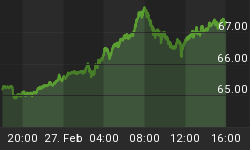With BP poised to move on from the Gulf oil spill with a new chief executive, the beleaguered London-based company might look attractive to Middle East sovereign wealth funds after all.
It would be a parting legacy from outgoing CEO Tony Hayward if his efforts earlier this month to court the funds in Abu Dhabi and other oil-producing countries were to bear fruit.
It may seem counter-intuitive at first blush that funds set up to diversify assets for oil exporters would want to invest in a major oil company. But BP, originally known as British Petroleum, has made good on its motto of recent years to go "beyond petroleum" - and it could do the same for oil producers.
BP has energetically acquired assets in natural gas and renewable energy that could translate into useful technology transfer for the well-heeled sovereign funds.
As Victoria Barbary, a senior analyst at the Monitor advisory group, recently told Reuters: "SWFs over the last two years have been actively investing into technology transfer from an economic diversification point of view. From this perspective, BP actually have an attractive portfolio."
Leaving the U.S. as persona non grata in the wake of the oil spill, Hayward embarked on a whirlwind tour at the beginning of July to court SWFs as shareholders, in large part to bolster the company's defense against a takeover.
Among others, he met with Abu Dhabi's crown prince, Mohammed bin Zayed al-Nahyan, urging him to have the emirate's sovereign wealth fund, considered to be the largest in the world, acquire up to 10% of BP, according to news reports.
Libya reportedly was also considering an investment through its sovereign wealth fund, though Kuwait, which already owns BP stock, ruled out any further acquisition for the time being.
Along with its decision to replace Hayward as chief executive, the BP board this week also agreed to sell off $30 billion in company assets to offset its expenditures in connection with the oil spill. The sale, representing a good 10% of BP's assets, would offer an opportunity for oil producers to acquire non-oil assets directly.
By Darrell Delamaide for OilPrice.com who offer detailed analysis on Oil, alternative Energy, Commodities, Finance and Geopolitics. They also provide free Geopolitical intelligence to help investors gain a greater understanding of world events and the impact they have on certain regions and sectors. Visit: http://www.oilprice.com















